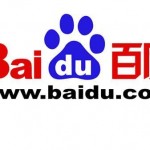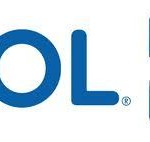 The current economic turmoil and a few regulatory queries has postponed Groupon Inc.’s $ 750 million IPO. The biggest provider of online daily-deal coupons and its bankers have pushed back the initial public offer and meetings with investors amidst tumultuous economic swings.
The current economic turmoil and a few regulatory queries has postponed Groupon Inc.’s $ 750 million IPO. The biggest provider of online daily-deal coupons and its bankers have pushed back the initial public offer and meetings with investors amidst tumultuous economic swings.
Groupon had intended to come out with the initial public offering in mid to late September but the downgrade of the US credit rating, the European debt crisis and investors’ concern about growth has perforced the company to delay its public debut. People in the know say that the Chicago-based company may still be able to sell shares publicly before the year-end.
Groupon filed its initial prospectus in June and since then the Standard & Poor’s 500 index has dropped 11 percent and the U.S. listings have slowed down because of investors’ concerns about economic growth.
Groupon spokeswoman Julie Mossler declined to comment on the issue.
The Wall Street Journal reported earlier on Tuesday that Groupon had scheduled a roadshow for next week but has called that off now. People in the know said on conditions of anonymity, because the IPO process is not public, that the company is not canceling its IPO but is reassessing the timing of offering on a week-by-week basis.
Groupon also needs time to address regulators’ questions, including possible revisions to a controversial accounting method used in its filing. Reportedly, Groupon was questioned by the Securities and Exchange Commission about a memo sent by CEO Andrew Mason to employees, and which was leaked to the media last month. The memo made positive estimations for Groupon and also defended the use of an unusual accounting metric in its IPO registration documents that excludes marketing and other expenses from profit calculations, called adjusted consolidated segment operating income or ACSOI.
Regulations limit what companies can say publicly, ahead of a planned IPO. Following regulatory scrutiny, Groupon amended its IPO filing in August to remove the offending metric.
The daily deal company now joins Zynga and other Internet companies who have postponed public flotations due to the dismal economic outlook.
Groupon, which was founded by Andrew Mason and Eric Lefkofsky two and a half years ago, already has investments from venture capitalists and other investors to the tune of $ 1.1 billion. Groupon started as a side project to another website called The Point that helped raise funds for various causes.
Thirty-year-old Mason continues to be Groupon’s CEO and one its largest stockholders with more than 23 million shares.
 Apart from financial disclosures, the other question investors are worried about is the underlying profitability of Groupon’s business of giving out coupons online. These coupons offer big discounts on local products and services.
Apart from financial disclosures, the other question investors are worried about is the underlying profitability of Groupon’s business of giving out coupons online. These coupons offer big discounts on local products and services.
Its June IPO filing with the Securities and Exchange Commission discloses that though the company has been growing quickly it has also been losing a lot of money on marketing. The company has been incurring losses on marketing to attract new subscribers, and, analysts worry that Groupon may have to continue spending heavily to attract and retain customers.
CEO Mason argues that once a customer has been signed on, they can be maintained through simple email alerts, thereby cutting down the subscriber-acquisition costs.
Unnamed sources said that Groupon has grand plans of slashing down costs to zero in less than three years. How successful the company will be in this endeavor remains to be seen, since, the daily deals industry has also been undergoing difficult times recently. Social media giant Facebook ended its Deals business within four months of its launch and Yelp’s CEO said that some popular businesses are of the view that daily deals are uneconomic. This begs the question about the sustainability of the daily-deal business model.


